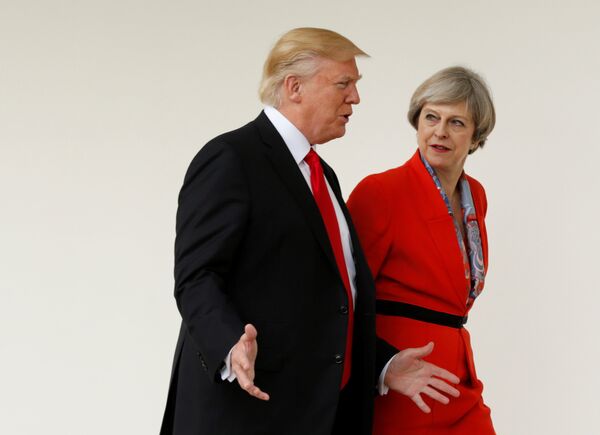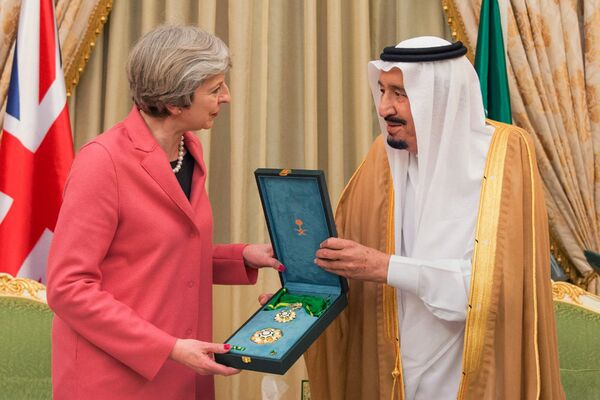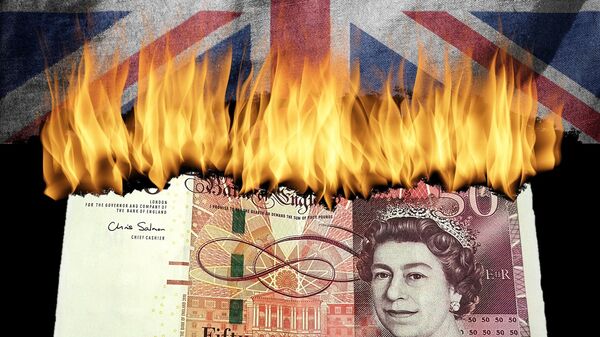In a joint press-conference on Monday, September 18, with Canadian Prime Minister Justin Trudeau, the two leaders signaled their intentions for the Comprehensive Economic and Trade Agreement (CETA) to be reworked post-Brexit into a UK-Canada free-trade arrangement. The treaty was initially intended to cover Canada and the European Union but stalled when the government of Belgium's Wallonia region rejected it.
Thank you, @Theresa_May, for a very productive day of talks to strengthen the Canada-UK relationship. Details: https://t.co/i5Qke2sJZ4 pic.twitter.com/KgsvVuSGCn
— Justin Trudeau (@JustinTrudeau) September 18, 2017
Were there to be a significant break in UK-EU economic relations, Britain would likely come to rely heavily on reviving economic relationships not seen since the dying days of the British Empire.
Former English Colonies
Britain has among the closest political relationships with its former settler colonies, Canada, Australia and New Zealand, which are still tied very closely to the UK culturally and through the institution of the monarchy. Previously intense trade relations were wound back however, when Britain joined the European Economic Community in 1973.
The resulting reduction in trade had significant economic effects, particularly on New Zealand and Australia who had to forge independent economic relations in Asia and with the US to offset the loss of the UK market.
With Brexit unfolding, the governments of both countries have been extremely enthusiastic at the prospect of increased trade with the UK, with many politicians calling for as frictionless economic relations as possible with Britain.
"Once Brexit has been achieved, we look forward to speedily concluding a free-trade agreement with Britain… I think we were the first on the phone to offer our support and our assistance in that regard," Mr. Turnbull said during his recent visit to the UK in July.
United States
Outside of the EU, Britain's closest economic relationship is with the US, which in 2016 took in US$54.2 billion-worth of British exports, and in turn exported US$55.3 billion worth of goods to the UK.
The US-UK "special relationship" is arguably already the closest alliance in the world. However the potential loss of access to European markets for British exporters may leave the UK even more dependent on US trade to offset this.

In New York on Tuesday British Prime Minister Theresa May met with US business leaders to advocate closer economic and financial integration between the two countries.
While former US president Barack Obama warned that Britain would be "at the back of the queue" for a free-trade agreement with the US in the event of it leaving the EU, his successor Donald Trump has enthusiastically played up the likelihood of such a deal, saying it would be completed "very, very quickly," and that it would be a "very big, very powerful trade deal."
"We are working on a trade deal which will be a very, very big deal, very powerful deal, great for both countries. I think we will have that done very, very quickly," president Trump announced at the G20 Summit in Hamburg this year.
Gulf Cooperation Council
Britain has occupied a dominant position in the Persian Gulf throughout the modern era, creating alliances and consequently new states from among the tribal factions of Arabia.

These states now form the Gulf Cooperation Council (GCC) and are comprised of Kuwait, the United Arab Emirates (formerly the Trucial States) Saudi Arabia, Bahrain, Qatar and Oman.
Britain's economy has long had a deep, largely unexamined dependence on surplus oil-profits invested by Gulf nations directly into UK financial institutions, as well as through large arms purchases which the UK has continued despite widespread condemnation of the Gulf States' use of such weapons against civilians during the war in Yemen.

In 2016, Prime Minister Theresa May attended a meeting of the GCC in Bahrain to push for further deepening of economic ties, while a follow-up summit took place in London in April 2017.
"As the United Kingdom leaves the European Union that we should seize the opportunity to get out into the world and shape an even bigger role for my country; yes, to build new alliances but more importantly, to go even further in working with old friends, like our allies here in the Gulf, who have stood alongside us for centuries," Mrs. May declared in her speech at the Bahrain summit.
The London Stock Exchange has also offered special treatment to Saudi state oil-firm ARAMCO, according to some estimates the world's most valuable company, in order to lure it into holding its public listing in the UK.


